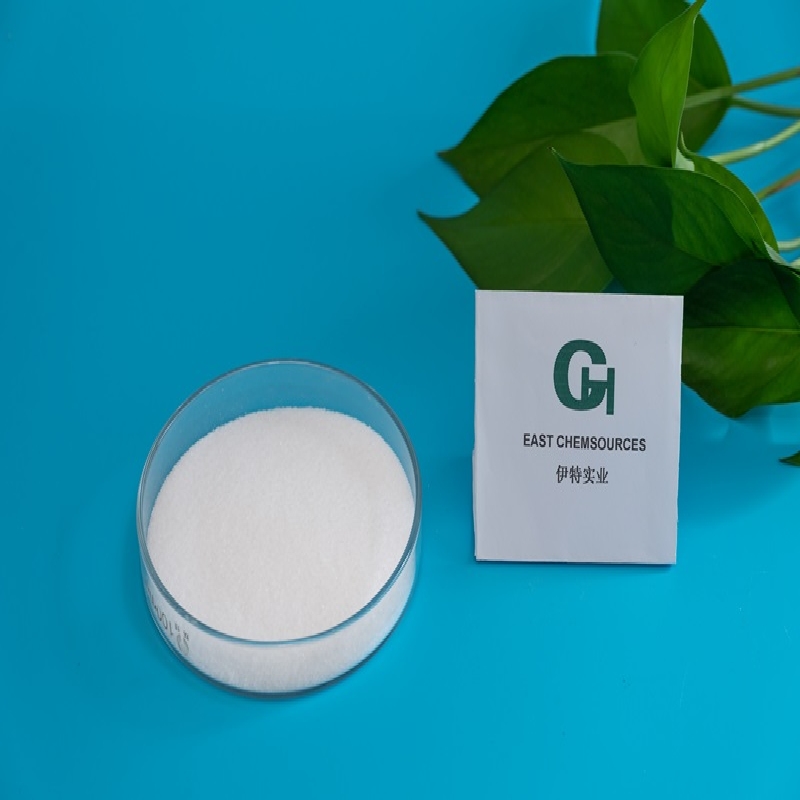-
Categories
-
Pharmaceutical Intermediates
-
Active Pharmaceutical Ingredients
-
Food Additives
- Industrial Coatings
- Agrochemicals
- Dyes and Pigments
- Surfactant
- Flavors and Fragrances
- Chemical Reagents
- Catalyst and Auxiliary
- Natural Products
- Inorganic Chemistry
-
Organic Chemistry
-
Biochemical Engineering
- Analytical Chemistry
- Cosmetic Ingredient
-
Pharmaceutical Intermediates
Promotion
ECHEMI Mall
Wholesale
Weekly Price
Exhibition
News
-
Trade Service
Introduction Colorectal cancer (CRC) is one of the most common cancers in the world, and the presence of diabetes is associated with a 30% increase in the risk of CRC.
Metformin is a first-line drug for the treatment of type 2 diabetes, and it has a chemopreventive effect on the occurrence of CRC.
In addition, preclinical studies have shown that metformin and oxaliplatin have a synergistic effect in inhibiting colon cancer in vitro models.
Recently, World J Gastroenterol published a review that mainly summarized the chemopreventive effect of metformin in the treatment of CRC and the impact of metformin on the survival of CRC patients receiving treatment.
The conclusion of this review is that there is more and more evidence that metformin has a chemopreventive effect on the occurrence of CRC, but its prognostic improvement effect on CRC patients receiving treatment is still unclear, and more prospective randomization is needed.
Evidence from controlled trials demonstrates this.
Chemopreventive effects of metformin in CRC: reducing the risk of CRC Previous studies have shown that metformin can reduce the risk of CRC.
Observational data show that diabetes patients taking metformin have a lower tumor incidence.
The results of interventional studies have shown that low-dose metformin for non-diabetic patients can reduce the incidence of colorectal adenomas.
A phase 3 randomized trial showed that after polypectomy in non-diabetic patients, taking low-dose metformin for 1 year can reduce the number and prevalence of colorectal precancerous lesions (such as polyps and adenomas).
A recently published retrospective cohort study of 47,351 subjects found that long-term (>5 years) exposure to metformin in diabetic patients was negatively associated with the risk of CRC, indicating that metformin has chemopreventive potential.
This result was subsequently confirmed.
A meta-analysis showed that metformin can significantly reduce the incidence of colorectal adenoma and CRC, and improve overall and CRC-specific survival rates.There is not much data on the role of metformin in the development of CRC in non-diabetic patients.
The results of randomized placebo-controlled trials show that metformin has chemopreventive potential for non-diabetic patients who are at high risk of CRC.
Although metformin is generally well tolerated in different cancer patients, and the side effects are not different from those observed in diabetic patients (dose-related gastrointestinal adverse reactions, rare lactic acidosis and vitamin B12 deficiency), more information is needed about optimal Dosage, dosing regimen, route of administration, duration of treatment, and related data on combination with other chemotherapy drugs for CRC patients (especially non-diabetic patients) to minimize their potential side effects.
The impact of metformin on the prognosis of CRC patients receiving treatment: It is unclear.
At present, the possible impact of metformin on CRC patients receiving treatment is still unclear.
Lee et al.
first observed that metformin had a protective effect on CRC in a single-institution cohort of 595 patients.
The results of the study showed that diabetic patients taking metformin had lower overall mortality and CRC-specific mortality.
However, the analysis of this study is always time-biased, which may affect the results.
Fransgaard et al.
evaluated the correlation between metformin and the overall survival rate of patients with CRC after resection.
The results showed that patients receiving metformin had a better overall survival rate than patients receiving insulin treatment.
However, there is no difference between cancer-specific mortality and diabetes-specific mortality, and it is still unclear what the respective roles of the two are in all-cause mortality.
Therefore, it cannot be determined whether the better overall survival rate in the metformin treatment group is due to the anti-tumor effects of metformin or other treatments.
A recent study showed that there is no correlation between the use of metformin and recurrence-free survival or disease-free survival in CRC patients undergoing surgical treatment.
A large population-based analysis from the United Kingdom showed that in a cohort of CRC patients with type 2 diabetes, the use of metformin after diagnosis of CRC has no protective effect on the survival rate of patients.
Several meta-analyses on this topic mostly show that the use of metformin in CRC patients can reduce CRC-specific mortality compared with no use.
However, the studies included in these meta-analysis are very heterogeneous in terms of design and inclusion criteria (for example, analysis of patients with different CRC stages).
In addition, in the included studies, information about the type of surgery and the administration of chemotherapy is usually not available.
There is evidence that the combination of metformin and adjuvant therapy may lead to a better prognosis for CRC patients who receive metformin treatment after surgery.
However, in a randomized study, this conclusion was not confirmed in high-risk stage II or stage III CRC patients who received adjuvant FOLFOX-4/XELOX treatment.
Another study evaluated the impact of metformin on the overall survival and recurrence-free survival of homogenous stage III CRC patients receiving adjuvant FOLFOX.
The results did not find a significant correlation between the two.
Therefore, the effect of metformin on the overall survival rate and recurrence-free survival rate of CRC patients undergoing chemotherapy after resection is still unclear.
Conclusion There is more and more evidence that metformin has a chemopreventive effect on the occurrence of CRC, but its prognostic improvement effect on CRC patients receiving treatment is still unclear, and more prospective randomized controlled trial evidence is needed to demonstrate this.
Literature index: Berkovic MC, Mikulic D, Bilic-Curcic I, et al.
How far along are we in revealing the connection between metformin and colorectal cancer[J]? World J Gastroenterol.
2021 Apr 14;27(14):1362- 1368.
Contribution email: tougao@medlive.
cn
Metformin is a first-line drug for the treatment of type 2 diabetes, and it has a chemopreventive effect on the occurrence of CRC.
In addition, preclinical studies have shown that metformin and oxaliplatin have a synergistic effect in inhibiting colon cancer in vitro models.
Recently, World J Gastroenterol published a review that mainly summarized the chemopreventive effect of metformin in the treatment of CRC and the impact of metformin on the survival of CRC patients receiving treatment.
The conclusion of this review is that there is more and more evidence that metformin has a chemopreventive effect on the occurrence of CRC, but its prognostic improvement effect on CRC patients receiving treatment is still unclear, and more prospective randomization is needed.
Evidence from controlled trials demonstrates this.
Chemopreventive effects of metformin in CRC: reducing the risk of CRC Previous studies have shown that metformin can reduce the risk of CRC.
Observational data show that diabetes patients taking metformin have a lower tumor incidence.
The results of interventional studies have shown that low-dose metformin for non-diabetic patients can reduce the incidence of colorectal adenomas.
A phase 3 randomized trial showed that after polypectomy in non-diabetic patients, taking low-dose metformin for 1 year can reduce the number and prevalence of colorectal precancerous lesions (such as polyps and adenomas).
A recently published retrospective cohort study of 47,351 subjects found that long-term (>5 years) exposure to metformin in diabetic patients was negatively associated with the risk of CRC, indicating that metformin has chemopreventive potential.
This result was subsequently confirmed.
A meta-analysis showed that metformin can significantly reduce the incidence of colorectal adenoma and CRC, and improve overall and CRC-specific survival rates.There is not much data on the role of metformin in the development of CRC in non-diabetic patients.
The results of randomized placebo-controlled trials show that metformin has chemopreventive potential for non-diabetic patients who are at high risk of CRC.
Although metformin is generally well tolerated in different cancer patients, and the side effects are not different from those observed in diabetic patients (dose-related gastrointestinal adverse reactions, rare lactic acidosis and vitamin B12 deficiency), more information is needed about optimal Dosage, dosing regimen, route of administration, duration of treatment, and related data on combination with other chemotherapy drugs for CRC patients (especially non-diabetic patients) to minimize their potential side effects.
The impact of metformin on the prognosis of CRC patients receiving treatment: It is unclear.
At present, the possible impact of metformin on CRC patients receiving treatment is still unclear.
Lee et al.
first observed that metformin had a protective effect on CRC in a single-institution cohort of 595 patients.
The results of the study showed that diabetic patients taking metformin had lower overall mortality and CRC-specific mortality.
However, the analysis of this study is always time-biased, which may affect the results.
Fransgaard et al.
evaluated the correlation between metformin and the overall survival rate of patients with CRC after resection.
The results showed that patients receiving metformin had a better overall survival rate than patients receiving insulin treatment.
However, there is no difference between cancer-specific mortality and diabetes-specific mortality, and it is still unclear what the respective roles of the two are in all-cause mortality.
Therefore, it cannot be determined whether the better overall survival rate in the metformin treatment group is due to the anti-tumor effects of metformin or other treatments.
A recent study showed that there is no correlation between the use of metformin and recurrence-free survival or disease-free survival in CRC patients undergoing surgical treatment.
A large population-based analysis from the United Kingdom showed that in a cohort of CRC patients with type 2 diabetes, the use of metformin after diagnosis of CRC has no protective effect on the survival rate of patients.
Several meta-analyses on this topic mostly show that the use of metformin in CRC patients can reduce CRC-specific mortality compared with no use.
However, the studies included in these meta-analysis are very heterogeneous in terms of design and inclusion criteria (for example, analysis of patients with different CRC stages).
In addition, in the included studies, information about the type of surgery and the administration of chemotherapy is usually not available.
There is evidence that the combination of metformin and adjuvant therapy may lead to a better prognosis for CRC patients who receive metformin treatment after surgery.
However, in a randomized study, this conclusion was not confirmed in high-risk stage II or stage III CRC patients who received adjuvant FOLFOX-4/XELOX treatment.
Another study evaluated the impact of metformin on the overall survival and recurrence-free survival of homogenous stage III CRC patients receiving adjuvant FOLFOX.
The results did not find a significant correlation between the two.
Therefore, the effect of metformin on the overall survival rate and recurrence-free survival rate of CRC patients undergoing chemotherapy after resection is still unclear.
Conclusion There is more and more evidence that metformin has a chemopreventive effect on the occurrence of CRC, but its prognostic improvement effect on CRC patients receiving treatment is still unclear, and more prospective randomized controlled trial evidence is needed to demonstrate this.
Literature index: Berkovic MC, Mikulic D, Bilic-Curcic I, et al.
How far along are we in revealing the connection between metformin and colorectal cancer[J]? World J Gastroenterol.
2021 Apr 14;27(14):1362- 1368.
Contribution email: tougao@medlive.
cn







